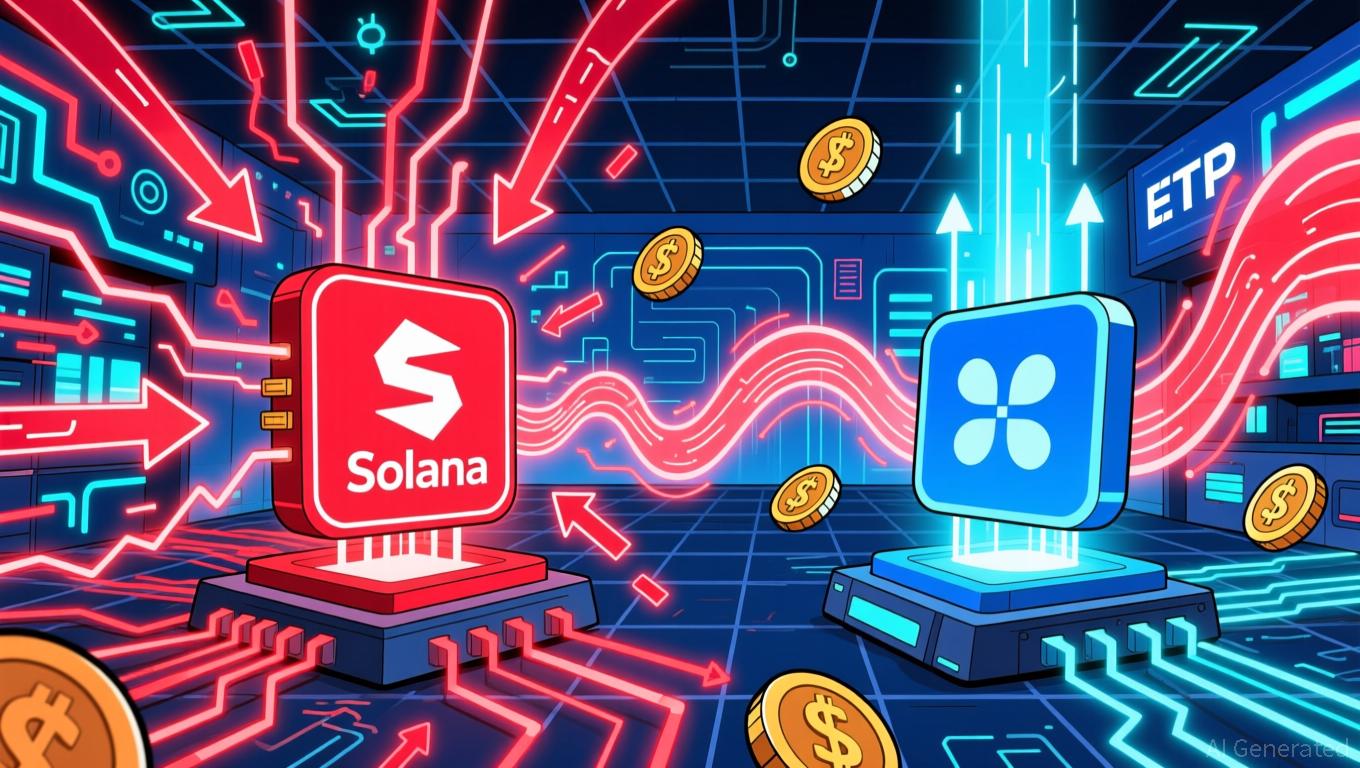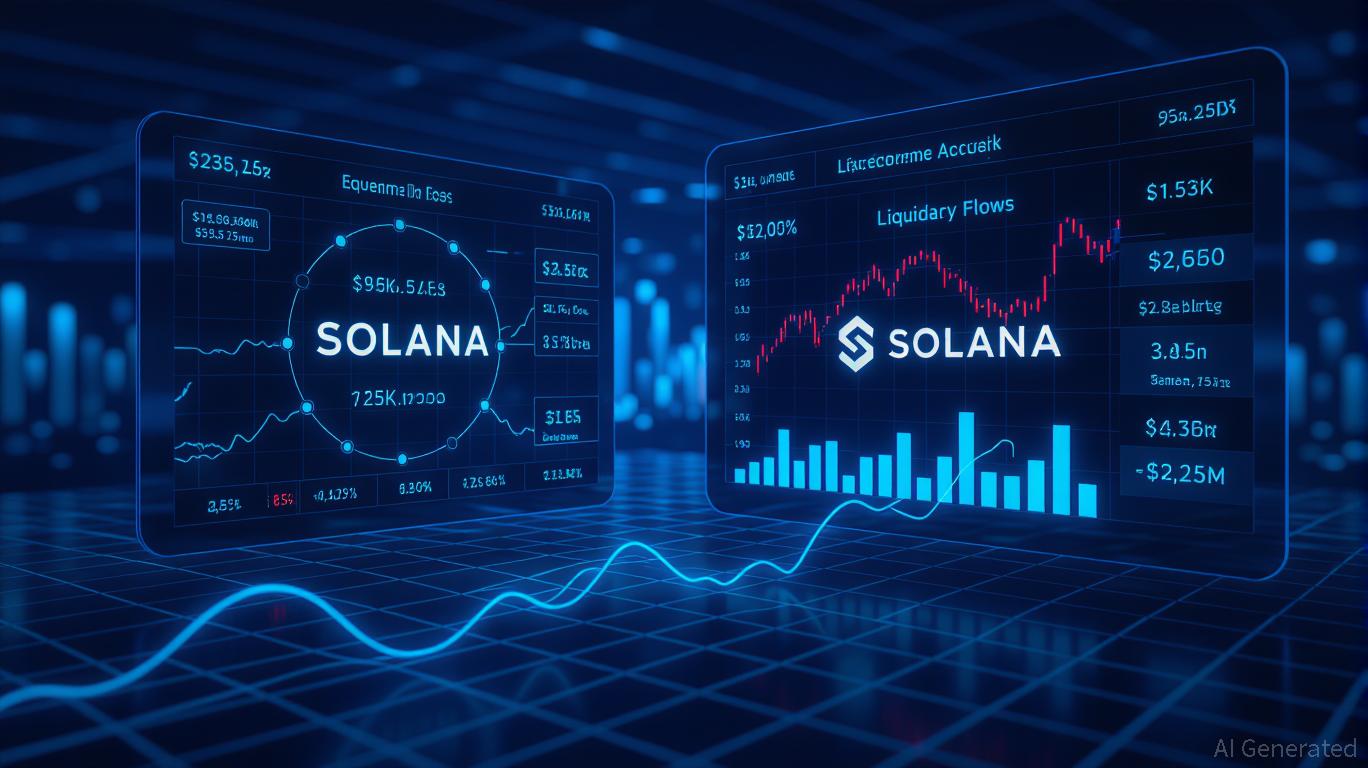ZEC drops 1.16% after Grayscale submits application for inaugural U.S. Zcash ETF
- Grayscale files first U.S. Zcash ETF application, seeking to convert its Zcash Trust into a spot ETF (ticker ZCSH) with Coinbase and BNY Mellon as partners. - ZEC's 825% 12-month price surge reflects growing institutional/retail demand for privacy-focused crypto, driven by Zcash's hybrid security-privacy architecture. - Reliance and Templar Protocol expand ZEC exposure through treasury allocations and first native ZEC borrowing on Solana , enhancing institutional adoption. - ETF approval faces regulatory
Grayscale Investments has submitted an application to the U.S. Securities and Exchange Commission to transform its Grayscale
As of November 25, the Grayscale Zcash Trust managed about 394,400 ZEC, with an estimated value of $199.2 million. Grayscale has a proven history of successfully converting its trusts into ETFs, as seen with its recent Dogecoin Trust, which transitioned to an ETF in roughly three months.
This filing comes at a time when ZEC’s price has seen significant gains in recent months. Over the past 30 days, ZEC has climbed by 28.74%, and over the last year, it has soared by 825.75%.

In addition to Grayscale’s move, Reliance Global Group (RELI) has broadened its involvement with Zcash. On November 26, the company revealed an increased investment in ZEC as part of its Digital Asset Treasury (DAT) strategy. Reliance pointed to ZEC’s Bitcoin-derived security and privacy options as primary factors for its allocation, emphasizing that these features align with its compliance-driven digital asset approach. This decision signals the company’s confidence in Zcash’s long-term value as a privacy-focused asset.
Templar Protocol has also advanced ZEC’s utility by enabling the first direct ZEC-backed borrowing. The protocol lets users use native ZEC as collateral to borrow stablecoins on
ZEC’s price has recently shown volatility, dropping 5.4% in the past week despite a 5% uptick on November 26. While the token has faced short-term downward pressure, it remains in a broader upward trend. Some analysts caution that prices could decline further if market sentiment shifts or if the ETF approval is delayed. Others maintain that demand for privacy tokens remains robust, especially among institutions seeking diversified exposure.
Grayscale’s application highlights the increasing acknowledgment of Zcash’s role in mainstream finance. The company’s legal team stressed ZEC’s significance in a diversified digital asset portfolio and its relevance in the changing regulatory environment. The ETF conversion process could take several months, and for now, share creation and redemption will likely be limited to cash transactions until regulatory guidelines become clearer.
In conclusion, the potential conversion of the Grayscale Zcash Trust into a spot ETF marks a significant step for ZEC’s adoption in traditional finance. Alongside Reliance’s treasury strategy and Templar’s new borrowing mechanism, these developments underscore Zcash’s growing presence in institutional and regulated financial markets. Investors and market watchers will closely follow the SEC’s review and ZEC’s price movements as the asset continues to gain acceptance in the broader investment landscape.
Disclaimer: The content of this article solely reflects the author's opinion and does not represent the platform in any capacity. This article is not intended to serve as a reference for making investment decisions.
You may also like
Ethereum News Update: Amundi’s Integrated Approach Connects Blockchain with Conventional Financial Regulations
- Amundi, Europe's largest asset manager, launched its first Ethereum-based tokenized money-market fund, enabling 24/7 settlements and transparent record-keeping via blockchain. - The hybrid model, developed with CACEIS, combines traditional fund operations with blockchain-based ownership, preserving regulatory compliance while expanding investor access. - Ethereum's dominance in stablecoin and RWA transfers ($105.94B in 30 days) underscores its role in accelerating tokenization, with Amundi positioning it

XRP News Today: XRP ETFs Drive Price Increases, While Solana ETFs Ease Selling Pressure
- XRP ETFs raised $587M in inflows since late November, outpacing Solana's $568M as investors favor altcoins with regulatory clarity and utility. - Bitwise XRP ETF's $107M debut and zero-fee strategy drove momentum, while Solana ETFs faced $156M weekly outflows due to network reliability concerns. - XRP's inflows acted as a "battering ram" pushing prices above $2.27, contrasting Solana's ETFs which merely dampened sell pressure without reversing its decline. - Analysts predict XRP could reach $3 by Decembe

The Federal Reserve's Change in Policy and Its Impact on Alternative Cryptocurrencies Such as Solana
- Fed's 2025 policy shifts, including rate cuts and stablecoin regulations, are reshaping altcoin markets by altering liquidity and risk appetite. - Solana's Alpenglow upgrade (150ms finality, 1M TPS) addresses scalability issues, aligning with Fed's AI-driven infrastructure focus despite network reliability concerns. - Institutional inflows into Solana ETFs ($100M AUM) contrast with retail caution (78% HODLers in red), highlighting divergent risk perceptions amid 30% price corrections. - Divergent ETF flo

Avail's Intent-Driven Nexus Addresses the Issue of Fragmented Liquidity Across Chains
- Avail launches Nexus Mainnet, a cross-chain solution unifying liquidity across Ethereum , Solana , and EVM networks. - The intent-solver model enables seamless asset transfers without technical complexities, streamlining user experiences. - Developers gain modular tools for multichain integration, reducing costs as cross-chain liquidity demand grows. - Nexus abstracts execution layers, offering unified balances and execution while addressing fragmentation challenges. - With $50B+ in cross-chain activity
